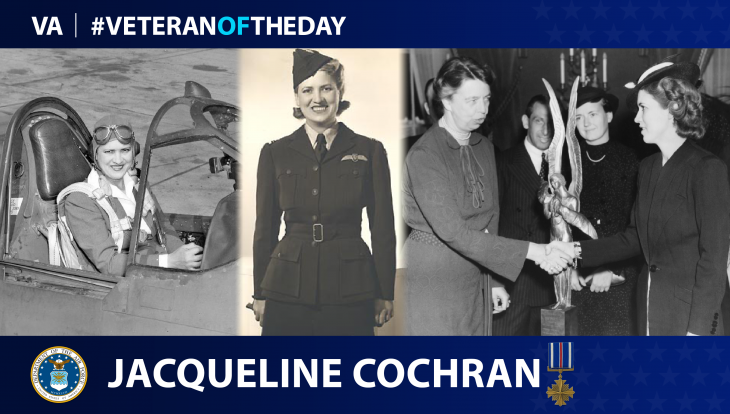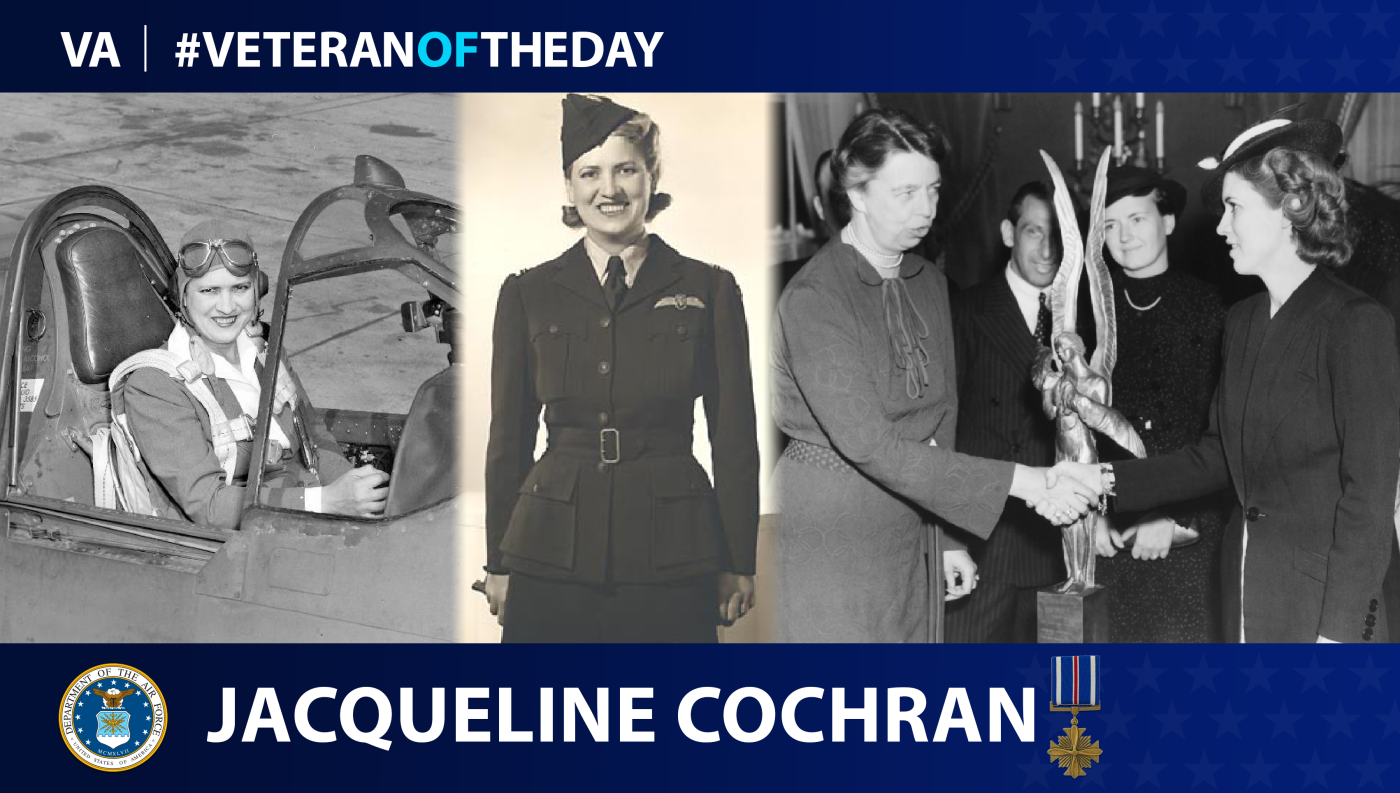
During Women’s History Month, today’s #VeteranOfTheDay is Air Force Veteran Jacqueline Cochran, a supervisory pilot during World War II.
Jacqueline Cochran, born Bessie Lee Pittman in 1906, was originally from the South. She grew up with limited means and did not even own a pair of shoes until she was 8 years old. As a child, Cochran had numerous jobs, including working in cotton mills and beauty shops. When she was a teenager, she married Robert Cochran, but they divorced a few years later. Cochran then moved to New York City to further her career and got a job at a salon at Saks Fifth Avenue. During this time, she changed her name to Jacqueline.
Through connections she made at Saks, Cochran met Floyd Odlum, a successful businessman whom she later married. Cochran had plans to start her own company selling beauty products, and Odlum suggested that she use air travel to distribute her products and gain a competitive edge. In 1932, Cochran took flying lessons and obtained her pilot’s license. By the mid 1930s, she started her beauty company. By then, Cochran had also become enamored with flying and air racing.
Cochran wrote to Eleanor Roosevelt and the Army in 1940 to propose that, given the shortage of male pilots, women fly noncombat missions. In September 1942, Cochran started leading the Women’s Flying Training Detachment (WFTD), a training program for female pilots. The next year, the WFTD merged with the Women’s Auxiliary Ferrying Squadron (WAFS), a small group of female pilots that ferried aircraft, to form the Women Airforce Service Pilots (WASP). As the head of WASP, Cochran supervised over 1,000 pilots.
WASP members flew military aircraft for all noncombat missions, ferried aircraft over long distances and tested newly overhauled aircraft. Even though 38 WASP members and trainees died in the line of service, none of them received any recognition or benefits. Cochran pushed Congress to make WASP part of the military, but a bill in support of this effort failed. WASP was disbanded in December 1944, and it was not until 1977 that the members of WASP were officially recognized as World War II Veterans. In 2009, WASP received a Congressional Gold Medal.
After World War II, Cochran worked as a correspondent for the now defunct Liberty Magazine, continued to run her cosmetics company, befriended President Dwight D. Eisenhower and pursued her passion for air racing, breaking multiple records. Cochran joined the Air Force Reserve in 1948 and retired in 1970 as a colonel.
For her service during World War II, Cochran received a Distinguished Service Medal and a Distinguished Flying Cross. In her lifetime, she held more speed, distance and altitude records than any other male or female pilot. Cochran passed away in 1980.
We honor her service.
Nominate a Veteran for #VeteranOfTheDay
Do you want to light up the face of a special Veteran? Have you been wondering how to tell your Veteran they are special to you? VA’s #VeteranOfTheDay social media feature is an opportunity to highlight your Veteran and his/her service.
It’s easy to nominate a Veteran. Visit our blog post about nominating to learn how to create the best submission.
Contributors
Writer: Michael Veronda
Editor: Julia Pack
Fact checker: Ileana Rodrigues
Graphic artist: Helena Strohmier
Topics in this story
More Stories
For National Parks Week, this week's #HonoringVeterans spotlight honors the service of Army Veteran and NPS employee Charles Barr.
This week’s Honoring Veterans Spotlight honors the service of Army Veteran Albert Tristan, who served during the Vietnam War.
This week’s Honoring Veterans Spotlight honors the service of Marine Corps Veteran Rodney Sickmann, who served in Iran.






We honor the service of Jacqueline Cochran.
May Colonel Jacqueline Cochran’s service and and dedication to the U . S. Armed Forces during WW11 never be forgotten. We salute you! José Rivera